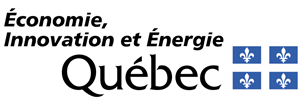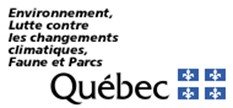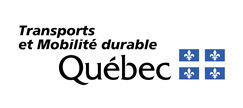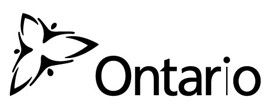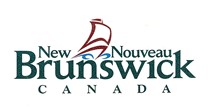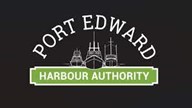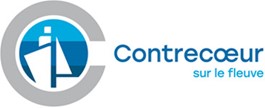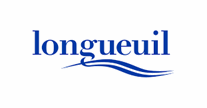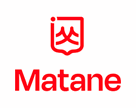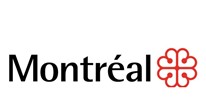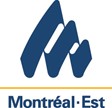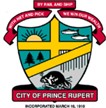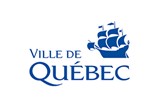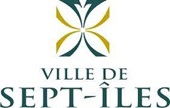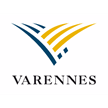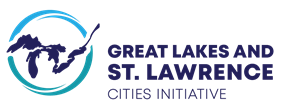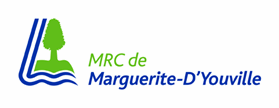
Supporters
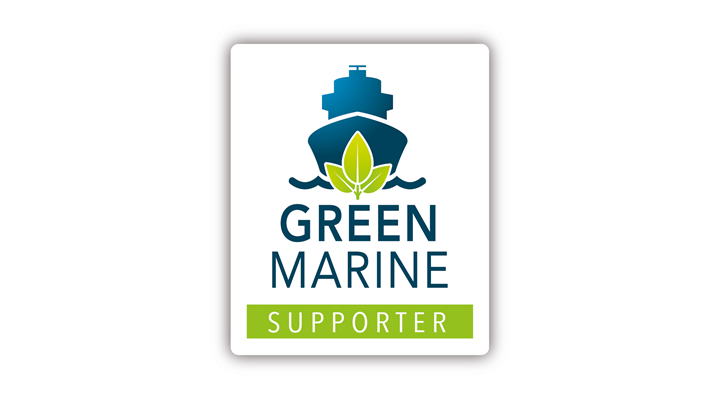
AT THE HEART OF GREEN MARINE’S COLLABORATIVE APPROACH
Green Marine supporters both support and encourage the sustainability initiative being undertaken by the maritime industry. These environmental groups, scientific institutions, and government agencies help to shape the environmental agenda and reflect its relevance and credibility.
Discover the advantages of being a Green Marine supporter.
Supporters by category

ENVIRONMENTAL GROUPS

GOVERNMENTS

RESEARCH, EDUCATION AND CONSERVATION

MUNICIPALITIES
ENVIRONMENTAL GROUPS
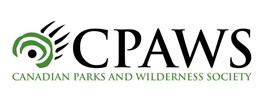
Canadian Parks and Wilderness Society in Quebec
Known in French as la Société pour la nature et les parcs (SNAP Québec), the Canadian Parks and Wilderness Society in Quebec (or CPAWS Quebec) is a non-profit organization dedicated to the protection of nature.
CPAWS Quebec is working to create a network of protected areas across the province, to ensure the long-term protection of the boreal forest, the Far North, the St. Lawrence and the ecosystems that are home to our threatened species. It also ensures the proper management of existing protected areas.
Founded in 2001, CPAWS Quebec can draw on a Canadian network that has been active since 1963, and today includes a national office in Ottawa and 13 chapters from coast to coast.
CPAWS Quebec has contributed to the creation of over 120,000 km² of protected areas in Quebec, including Tursujuq National Park.

Canadian Wildlife Federation
The Canadian Wildlife Federation’s mission is to conserve and inspire the conservation of Canada’s wildlife and habitats for the use and enjoyment of all. Established in 1962, CWF is now one of the oldest and largest not-for-profit conservation organizations in Canada. CWF conducts its activities through a cooperative model, working with people, corporations, non-government organizations and governments to inspire collaboration in achieving wildlife conservation. CWF uses the best available science-based information to develop its policies, programs and communications. A recognized leader in both conservation science and education, CWF delivers programs that encourage Canadians to experience the great outdoors, to learn about our natural wonders and to take action toward a bright future for wildlife.

Carbon War Room
The Carbon War Room is a global, independent non-profit organization based in the United States. It has developed a search tool, powered by Rightship’s Existing Vessel Design Index (EVDI), to provide a systematic, transparent means of comparing the relative theoretical efficiency and sustainability of an existing fleet by measuring a ship’s theoretical CO2 emissions per nautical mile travelled.
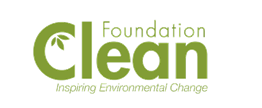
Clean Nova Scotia
Clean Foundation is a non-profit, non-governmental environment organization created in 1988. It works for a clean climate and clean water. Clean Foundation focuses on critical ecological issues including energy & climate change, clean water, marine health, waste reduction, and youth education. Its work includes practical on-the-ground programs, policy contributions, partnerships & strategic collaborations, and participatory, experiential education. For example, Clean Foundation’s Great Nova Scotia Pick-Me-Up is Nova Scotia’s largest volunteer-driven community clean-up program, promoting litter clean-ups across the province. Its Ship-to-Shore program aims to engage Nova Scotian commercial fishers to address concerns regarding waste disposal practices at sea, and the lack of waste management resources at fishing harbours. To date, Ship-to-Shore has landed in over 130 fishing harbours. Clean is also sharing the program concept in other Atlantic Canadian provinces.
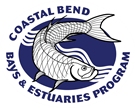
Coastal Bend Bays & Estuaries Program
The Coastal Bend Bays & Estuaries Program (CBBEP) is a local non-profit 501(c)(3) organization dedicated to researching, protecting and restoring the bays and estuaries of the Texas Coastal Bend.
Its mission is to implement the Coastal Bend Bays Plan, which is to protect and restore the health and productivity of the bays and estuaries while supporting continued economic growth and public use of these waterways. The plan identifies specific actions that benefit the bay system and its users.
The program encompasses a 75-mile (120-kilometre) estuarine stretch along the south-central Texas coastline that includes 12 counties within the Coastal Bend, including all bays, estuaries and bayous in the Copano, Aransas, Corpus Christi, Nueces, Baffin and upper Laguna Madre’s bay systems.
The CBBEP is one of 28 areas in the National Estuary Program established by U.S. Congress in 1987. It joined in 1994, and the Bays Plan received state approval in 1999. The program originated as a federal and state planning effort, but local participants sought to take ownership of the program’s implementation, which is why a non-profit organization was created led by a local board of directors.
As a non-regulatory, voluntary partnership effort working with industry, environmental groups, bay users, local governments and resource managers to improve the health of the bay system, the CBBEP encourages individual and organizational involvement. A mix of local governments, industry, state, and federal agencies provide funding. The CBBEP also seeks private grants and additional governmental funding.
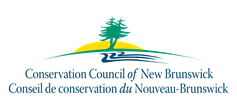
Conservation Council of New Brunswick
Conservation Council of New Brunswick is a non-profit organization that creates awareness of environmental problems and advances practical solutions through research, education and interventions.
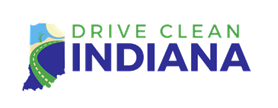
Drive Clean Indiana
Drive Clean Indiana is a nonprofit organization managed by Legacy Environmental Services, Inc., an Indiana Certified Women’s Business Enterprise. Designated as the 71st Clean Cities coalition on June 15, 1999, Drive Clean Indiana is one of the U.S. Department of Energy’s more than 75 Clean Cities coalitions and is the only Clean Cities coalition in the state of Indiana. The organizations support the nation’s energy and economic security by building partnerships to advance affordable domestic transportation fuels, energy efficient mobility systems and other fuel-saving technologies and practices.
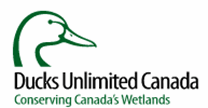
Ducks Unlimited Canada
Ducks Unlimited Canada (DUC) is the leader in wetland conservation. A registered charity, it partners with government, industry, non-profit organizations and landowners to conserve wetlands that are critical to waterfowl, wildlife and the environment.
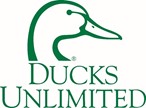
Ducks Unlimited Inc.
A world leader in wetlands and waterfowl conservation, Ducks Unlimited (DU) conserves, restores and manages wetlands and associated habitats for North America's waterfowl and in the process also improves these areas for other wildlife as well as people.
DU began in 1937 when a small group of sportsmen vowed to voluntarily work together on habitat conservation following the Dust Bowl drought that plunged waterfowl populations to unprecedented low numbers.
The private conservation organization multilaterally achieves success by working through a series of partnerships with private individuals, landowners, agencies, scientific communities and other entities. DU is working to reverse the trend of wetlands and other habitats deemed essential to waterfowl being destroyed or degraded across North America.
Registered as a non-profit organization, DU hosts more than 4,000 fundraising events annually with revenues going to prioritized conservation efforts or used to leverage additional funds from other sources.
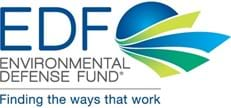
Environmental Defense Fund
Environmental Defense Fund (EDF), a leading national nonprofit organization, links science, economics, law, and innovative partnerships to create transformational solutions to the most serious environmental problems. Its mission is to preserve the natural systems on which all life depends. EDF helps port and shipping operators replace old, inefficient equipment and deploy zero- and low-emission technology by driving public and private funds to port areas that need it most.
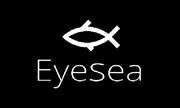
Eyesea
Eyesea is a non-profit organization with a mission to map global pollution and maritime hazards to provide the necessary data for seeking effective solutions. In 2020, Eyesea developed the concept of using geotagged pictures to chart maritime pollution. This mapping solution is currently under development after having obtained the necessary support and funding.

Georgian Bay Forever
As a registered Canadian charity founded in 1995, Georgian Bay Forever is a community response to the growing need to protect, preserve and enhance the aquatic ecosystems of Georgian Bay and the environmentally sustainable quality of life its communities and visitors enjoy through public education and scientific research with accredited institutions.
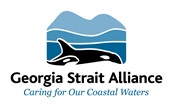
Georgia Strait Alliance
Established in 1990, Georgia Strait Alliance (GSA) is the only grassroots citizens’ organization focused on the protection and restoration of the Strait of Georgia – one of Canada’s most at-risk environments. GSA is also working to promote the sustainability of the strait, as well as its tributaries and communities. The organization is committed to a future for the region that has clean water and air for healthy salmon runs, abundant marine life, and sustainable development by the communities using the best available science, the precautionary principle, experience, traditional ecological knowledge, as well as taking into account community values.

High Ambition Climate Collective (HACC)
High Ambition Climate Collective (HACC) is bringing together climate champions, innovative solution providers, and progressive industry partners to build enduring progress within policymaking institutions. Through research, education and capacity building, HACC fosters collaborative forums to advance climate action and system change for a climate-positive future.
The HACC Ports initiative is focused on accelerating the transition to a zero-emission and climate-positive future at various global ports which are featured in HACC’s project database.

International Secretariat for Water
The International Secretariat for Water (ISW) is an international, non-governmental organization created in 1990 whose mission is to promote access to drinking water, hygiene and sanitation for all, support local communities in choosing appropriate solutions, help build local governance that involves users, elected officials, technicians and financial backers, raise public awareness regarding the issues of basin-level integrated water management, promote regional alliances and support global networks.
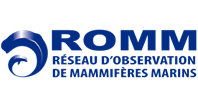
Marine Mammal Observation Network (MOMN)
The Marine Mammal Observation Network (MMON) is a not-for-profit marine mammal observation network based in Rivière-du-Loup, Quebec. MMON has been working for the conservation and development of the St. Lawrence River and its marine life since 1998. Its integrated management approach involves the maritime industry’s various stakeholders in a coordinated effort to preserve marine ecosystems.
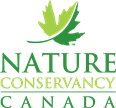
Nature Conservancy of Canada
The Nature Conservancy of Canada (NCC) is a not-for-profit NGO with a mission to protect the abundantly bio-diverse habitat and natural corridors in southern Quebec. NCC is actively involved with safeguarding the St. Lawrence River ecosystem by conserving more than 3,800 hectares (9,390 acres) of natural habitat on the waterway’s shorelines and islands. NCC fulfils an important role by acquiring, overseeing, restoring and improving ecologically vital properties.

Nature Québec
Nature Québec actively works to conserve natural ecosystems and to encourage the sustainable use of resources in Québec. Since 1981, Nature Québec has taken a global approach towards some of the greatest issues in climate change and biodiversity. Locally, Nature Québec leads campaigns and projects concerning biodiversity, forests, energy, and climate, from Anticosti Island to the heart of our cities.
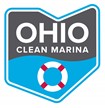
Ohio Clean Marinas
The Ohio Clean Marinas Program is a proactive partnership designed to encourage marinas and boaters to use simple but innovative solutions to keep Ohio’s coastal and inland waterway resources clean. The program helps marina and boating operators to protect the clean water and fresh air that provide their livelihood. The program strengthens environmental stewardship by making marinas and boaters more aware of environmental laws, rules and jurisdictions, and by encouraging as many marinas as possible to follow best management practices to be designated as a Clean Marina. The benefits for a certified Clean Marina include public recognition for an enhanced image, the membership interest of conscientious boaters, possible financial incentives and compliance assistance and, most importantly, improved water quality and wildlife habitat.

One Drop
The ONE DROP Foundation is an initiative of Cirque du Soleil founder Guy Laliberté. The Foundation’s prime mandate is to raise awareness, among individuals and communities, of water-related issues to convince them to mobilize for universal access to water, in sufficient quantities, and urge them to adopt sound habits for managing this precious resource for future generations.

Pacific Environment
Pacific Environment, a non-profit organization based in San Francisco, empowers communities to protect their well-being and natural world.
By managing to supply pivotal funding and expertise in challenging regions along the Pacific Rim, including the Alaskan Arctic, Russia and China, the organization helps to protect the environment in these more remote places. It also promotes governing transparency, public participation and legal enforcements for healthier communities and environments.
Pacific Environment among very few organizations providing grants and training for grassroots leadership along the Pacific Rim. Its long-term commitment to community-led environmental activism involves a comprehensive support program that includes financial assistance, mentoring support, coordinated networks, as well as scientific, technical and/or legal expertise as required.
More than 150 grassroots organizations have received support in the millions of dollars from Pacific Environment. They have in turn carried out public education litigation, media outreach, large-scale advocacy campaigns, and sophisticated policy work.
Pacific Environment’s substantial expertise in global policy has earned it one of the few seats available to NGOs at the International Maritime Organization (IMO). It uses its seat to advocate for rules that protect marine mammals, ensure Indigenous food security, curb greenhouse gas emissions, and protect Arctic waters from the dangers of oil spills.
Pacific Environment est l'une des rares organisations à fournir des subventions et une formation pour le leadership local le long du Pacifique. Son engagement à long terme dans l'activisme environnemental dirigé par la communauté comporte un programme de soutien complet comprenant une assistance financière, un soutien en mentorat, des réseaux coordonnés, ainsi que des compétences scientifiques, techniques et/ou juridiques au besoin.
Plus de 150 organisations locales ont reçu un soutien financier de plusieurs millions de dollars de la part de Pacific Environment. Elles ont ensuite mené des actions de sensibilisation du public, des actions en justice, des campagnes de plaidoyer à grande échelle et un travail politique sophistiqué.
L'expertise considérable de Pacific Environment en matière de politique mondiale lui a valu l'une des rares places disponibles pour les ONG à l'Organisation maritime internationale (OMI). Elle utilise cette place pour plaider en faveur de règles visant à protéger les mammifères marins, à garantir la sécurité alimentaire des peuples autochtones, à réduire les émissions de gaz à effet de serre et à protéger les eaux de l'Arctique contre les dangers des déversements de pétrole.

Pacific Salmon Foundation
Established in 1987, the Pacific Salmon Foundation is a federally incorporated non-profit charitable organization dedicated to the conservation and restoration of wild Pacific salmon and their natural habitat in British Columbia and Yukon. Operating independently from government, it facilitates dialogue and undertakes positive initiatives in support of Pacific salmon amongst all levels of government, including First Nations, as well as industry, communities, individual volunteers, and all fishing interests.
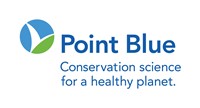
Point Blue
Point Blue advances conservation of birds, other wildlife and ecosystems through science, partnerships and outreach. Our highest priority is to reduce the impacts of habitat loss, climate change, and other environmental threats while promoting nature-based solutions for wildlife and people, on land and at sea.
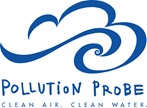
Pollution Probe
Pollution Probe is a national charitable environmental organization that exists to improve the health and well-being of Canadians by advancing policy that achieves positive, tangible environmental change. Since 1969, Pollution Probe has been defining environmental problems through research, promoting understanding through education and pressing for practical solutions through advocacy. Pollution Probe has a proven track record of working in partnership with industry and government to develop practical solutions to environmental challenges.

RE Sources
Founded in 1982, RE Sources is a not-for-profit organization working to protect the environment and communities of the central Salish Sea region, along with the overall climate. The organization spearheads community action to build a lasting legacy of clean water, protected shorelines, along with the recovery of orcas and salmon, for the benefit of all.
Based in Bellingham, Washington, the RE Sources team of trusted and time-tested environmental advocates, educators and scientists give people various practical ways to make a real difference for the planet’s health. These actions range from passing stronger laws that protect the environment and empower youth, to holding corporate polluters accountable. They also involve reducing waste and carbon footprint. The changes are sought through smart policy, grassroots mobilization, hands-on science and environmental education.
The organization’s deep roots and broad connections within Northwest Washington empower RE Sources to inspire and mobilize thousands of people to protect the region’s bounty and beauty.

Save The Bay
Founded in 1970, Save The Bay® – Narragansett Bay is a member-supported non-profit organization dedicated to protecting and improving Narragansett Bay and its 1,705-square-miled watershed. Through its advocacy, habitat restoration, and education efforts Save The Bay aspires to realize its vision of a fully swimmable, fishable, healthy Narragansett Bay, accessible to all.

Sedna Foundation
The SEDNA Foundation is an organization with an environmental, educational and scientific mission. Jean Lemire is a filmmaker and biologist who is known to many for his Antarctic expedition on board the SEDNA IV oceanographic vessel, during which he and his team provided viewers with daily reports on the devastating effects of climate change on the Antarctic peninsula.
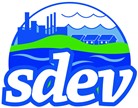
Southwest Detroit Environmental Vision
Southwest Detroit Environmental Vision (SDEV) is a 501(c)(3) non-profit organization with the mission to improve Southwest Detroit’s economy and environment.
The organization serves as a voice for creating an environmentally healthy community that is a model for urban revitalization prioritizing community participation.
SDEV works as a coalition in partnership with residents, community organizations, governmental agencies, schools, industries and businesses to address issues such as air and water quality, incompatible land use, and blight (such as illegal dumping, abandoned homes, and graffiti).
Its Healthy Air Team works on behalf of residents to obtain cleaner air rules and to help businesses and institutions reduce pollution from their operations.
Funded through memberships, individual and corporate donations, as well as grants, SDEV’s work would not be possible without the dedication of community volunteers.
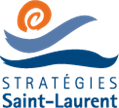
Stratégies Saint-Laurent
Stratégies Saint-Laurent is a non-profit organization that brings together the 14 ZIP committees in Quebec to promote the protection, rehabilitation and enhancement of the St. Lawrence.
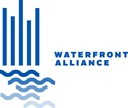
Waterfront Alliance
The Waterfront Alliance inspires and effects resilient coastlines accessible to all communities. The Waterfront Alliance began as a project of The Municipal Art Society of New York. It became an independent organization in 2007 when a group of leading activists, businesses, foundations and civic organizations came together with the goal of making the New York and New Jersey Harbor a shared resource for all. Since then, the Waterfront Alliance has grown into a coalition of more than 1,000 organizations working together to achieve real change to the region’s waterways and 700 miles (1,126 kilometres) of shoreline. In 2018, the Waterfront Alliance stepped into a new and critical leadership role to define the New York and New Jersey Harbor’s response to sea level rise and coastal storms.

World Wildlife Fund Canada (WWF-Canada)
WWF (World Wildlife Fund) is Canada’s largest international conservation organization with the active support of more than 150,000 Canadians. It connect the power of a strong global network to on-the-ground conservation efforts across Canada, with offices in Vancouver, Prince Rupert, Toronto, Ottawa, Montreal, Halifax, St. John’s, and a growing presence in the Arctic. Its mission is to stop the degradation of the planet’s natural environment and to build a future in which humans live in harmony with nature, by: conserving the world’s biological diversity, ensuring that the use of renewable natural resources is sustainable and, promoting the reduction of pollution and wasteful consumption.

GOVERNMENTS

Canadian Coast Guard
The Canadian Coast Guard is a special operating agency within Fisheries and Oceans Canada that works to ensure the safety of mariners in Canadian waters and protect Canada’s marine environment.
It supports Canada’s economic growth through the safe and efficient movement of maritime trade in and outside Canadian waters. The Canadian Coast Guard helps to ensure the country's sovereignty and security through its presence in Canadian waters.
The Canadian Coast Guard owns and operates the federal government's civilian fleet and provides key maritime services to Canadians. It also plays a key role in ensuring the sustainable use and development of Canada's oceans and waterways.

Centre d'expertise en gestion des risques d'incidents maritimes
CEGRIM, a centre specializing in the expert management of maritime incident risks, was created by the Quebec government to put tools and best practices in place for spill prevention but also planning, response and recovery in the event of a hazardous materials spill in the St. Lawrence River. CEGIM’s expertise is in addition to the support offered by the Public Security Ministry to municipal authorities when developing civil protection plans.

Consulate General of Denmark in Houston
In Houston, the Consulate General of Denmark is the official Danish mission. Its wide range of services include consular assistance to Danes in the U.S. Southwest, and business advising to Danish companies entering or expanding in North America.
Its Trade Council works to create opportunities for Danish companies, further strengthening the partnerships between Denmark and the United States within the maritime, energy and environment, health and life science realms. A number of Danish companies are already helping the State of Texas to address the challenges associated with a rapidly increasing population, climate change impacts, deficient infrastructure, and the rising demand for clean water.
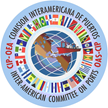
Inter-American Committee on Ports of the Organization of American States
The Inter-American Committee on Ports (CIP) of the Organization of American States (OAS) brings together the National Port Authorities of all 35 sovereign nations of the Americas. It promotes the development of competitive, sustainable and secure ports in the Western Hemisphere by actively facilitating cooperation between the highest governmental levels and the private sector. To date, CIP has more than 40 private sector firms and institutions as associate members. Its mission to promote sustainable port management practices, competitiveness and logistics maintains the protection of the marine environment as an important priority. CIP also deals with legislative and regulatory changes, corporate social responsibilities, security concerns, onshore tourism and passenger-related services, as well as gender equality matters.
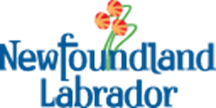
NewFoundland & Labrador Department of Municipal Affairs and Environment
The Newfoundland and Labrador Department of Municipal Affairs and Environment supports the economic, social and environmental sustainability of municipalities, communities and regions through the delivery of effective programs, services and support. The department assists municipalities in meeting their infrastructure needs. It helps to provide the financial and administrative tools to support the development of regional cooperation, community capacity, and sound municipal governance. The department is responsible for emergency preparedness and response, as well as provincial coordination of fire protection and prevention services. It is also responsible for environmental protection and enhancement by implementing water resource and pollution prevention policies and regulations, as well as coordinating environmental impact assessments of proposed development projects and managing affected sites.

Nova Scotia Environment
The Nova Scotia Department of the Environment is responsible for delivering effective and efficient regulatory management for the protection of the environment. The department develops programs and delivers services to enhance the protection of the environment, as well as human and animal health. The staff develop legislation, regulations and policies based on sound scientific knowledge and expertise. They educate the public, as well as inspect and enforce regulations to ensure compliance. They also proactively respond to environmental, human and animal health risks.
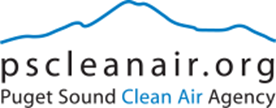
Puget Sound Clean Air Agency
The Puget Sound Clean Air Agency is an air-quality management agency serving King, Kitsap, Pierce and Snohomish counties in Washington State. Created as a result of the 1967 Washington Clean Air Act, the agency protects public health by adopting and enforcing air quality regulations, educating individuals and businesses about clean-air choices, and sponsoring voluntary initiatives to improve air quality.
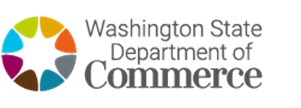
Washington State Department of Commerce
The Department of Commerce is a Washington State government agency that relates to every aspect of community and economic development. The maritime industry is one of the department’s key sectors of focus, rooted as it is in the historic strength of the state’s natural resources, strategic location and excellent transportation connections to provide efficient access to global markets. The maritime sector contributes $37.6 billion in revenue to the state’s economy, and directly employs nearly 69,500 people. Commerce strives to work with industry stakeholders, as well as within government, to set the course for sustainable maritime industry innovation. Spearheaded by Commerce, the Washington Maritime BLUE 2050 strategy is set to ensure that Washington State is the home of the most sustainable maritime industry within the next few decades.
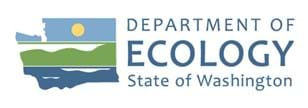
Washington State Department of Ecology
The Washington Department of Ecology has the mission is to protect Washington State’s environment, public health and safety through a comprehensive Spill Prevention, Preparedness and Response Program. The program works with communities, industry, state and federal agencies, tribes and other partners to prevent and prepare for oil spills. The program also responds to oil and hazardous-material spills 24/7 from six offices located throughout the state, and works to assess and restore environmental damage resulting from spills.

RESEARCH, EDUCATION AND CONSERVATION
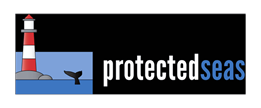
Anthropocene Institute - ProtectedSeas
Anthropocene Institute – ProtectedSeas works to encourage sustainable, long-term solutions to ocean issues through innovative technology projects. The Marine Protected Area (MPA) mapping project, a public-private partnership with the NOAA MPA Center, is establishing the most comprehensive source for identifying place-based protections on marine extraction and delivering that to boaters through free online tools and partnerships with electronic charting providers. To help monitor and enforce MPAs, ProtectedSeas has a Marine Monitor (M2) system that leverages low-cost, commercial marine radar technology to provide 24/7 coverage of near-shore MPAs using customized software. For more information on these and other projects, visit ProtectedSeas.net

BC-SMART
Established in 2019, BC-SMART (a.k.a. British Columbia – Sustainable Marine, Aviation, Rail and Trucking) is a consortium of industry, provincial government and academic stakeholders committed to decarbonizing long-distance transport in British Columbia and beyond. BC-SMART works towards this goal by encouraging the production and use of low carbon intensive transport fuels, primarily drop-in biofuels. One of its approaches is to spur the formation of a coalition of the willing that includes key industry, government and university stakeholders. The BC-SMART Secretariat is supported by the BC Bioenergy Network (BCBN) and the Ministry of Energy, Mines and Low Carbon Innovation.

California State University Maritime Academy
Located on a compact and scenic waterfront campus in Vallejo, California, California State University Maritime Academy (Cal Maritime) is a unique and specialized campus of the 23-campus California State University system. Serving nearly 1,000 students, it is one of only seven degree-granting maritime academies in the United States — and the only one on the West Coast.
A key part of the campus experience is the annual training cruise aboard their 500-foot Training Ship Golden Bear. She serves as a floating classroom/laboratory where classroom concepts in marine transportation, engineering and technology are practiced and applied. School-sponsored, study-abroad trips provide those studying international business, logistics, maritime security and maritime policy with first-hand exposure to those practices in locations around the world.
The unique Cal Maritime program combines classroom learning with applied technology, leadership development and global awareness. Cal Maritime’s graduates have excellent career opportunities on land and at sea.
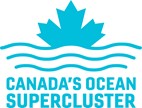
Canada’s Ocean Supercluster
Canada’s Ocean Supercluster is an industry-led transformative cluster model that is driving cross-sectoral collaboration, accelerating innovation, and growing Canada’s ocean economy in a way that has never been done before. Canada’s Ocean Supercluster is guided by the shared vision of leaders in fisheries, aquaculture, offshore resources, transportation, marine renewables, defence, bio resources, and ocean technologies to leverage our strengths to solve ocean challenges together. By matching industry investment, and facilitating collaboration and close alignment with the ecosystem, academia, science, indigenous communities, and government, Canada’s Ocean Supercluster is activating game-changing projects and advancing Canada’s position as a global leader in ocean.
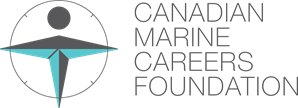
Canadian Marine Careers Foundation
The Canadian Marine Careers Foundation (CMCF) is working to develop innovative and dynamic solutions to create long-term human capital sustainability for one of Canada’s most vital industries that is facing significant talent shortages, now and well into the future.
The CMCF serves as a resource centre for information on careers at sea and ashore, as well as for the financial assistance available to support maritime studies at nautical schools and academic institutions. The CMCF also serves as a point of contact to direct educational, mentoring and employment inquiries to the appropriate channels.

Canadian Water Resources Association
The Canadian Water Resources Association (CWRA) is a national registered charity comprised of members from the public, private and academic sectors committed to promoting responsible, innovative and effective water resources management.
Formed in 1947 as the Western Canada Reclamation Association, CWRA is currently the only national organization addressing all water resources issues across all regions of Canada. The association offers a range of programs and services focused on professional development, as well as provides expert advice, educational resources and positive collaboration.
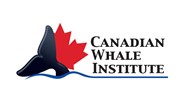
Canadian Whale Institute
The Canadian Whale Institute (CWI) was formed in 1997 to increase awareness of the North Atlantic right whale, one of the world’s most endangered large whales. CWI promotes stewardship with mariners to reduce the two major factors affecting the whale’s recovery: vessel strikes and entanglement in commercial fishing gear. Its education, research and conservation projects are focused in Canadian waters, including the Bay of Fundy, the Scotian Shelf and the Gulf of St. Lawrence. It strives to increase marine mammal awareness through directed programs involving the marine industry, governments and the public. The involvement of the Canadian Whale Institute in research and conservation has played a major role in the ongoing recovery efforts for the North Atlantic right whale in Canadian waters.

Centre de transfert technologique en écologie industrielle (CTTÉI)
The Centre de transfer technologique en écologie industrielle (CTTÉI) is an applied research centre with the mission to support companies, municipalities and communities in the implementation of innovative pragmatic initiatives in the circular economy. Its team of 20 engineers, chemists and technicians are working to identify profitable opportunities to improve the competitiveness of businesses by diverting their residual materials from landfills. The team is experts in residue recovery, lifecycle analysis, and the circular economy. An upcoming project involves ship dismantling in Sorel-Tracy.
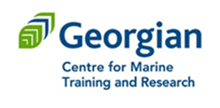
Centre for Marine Training and Research (Georgian College)
In partnership with the marine industry, the Georgian College Centre for Marine Training and Research (CMTR) delivers internationally recognized marine training and certification through excellence in continuing education. It provides the marine industry with competent current and future leaders – the best marine officers and ratings at sea. The CMTR pursues innovative applied Marine Simulation Technology research initiatives by seeking partnerships and collaboration, and providing world class technical and human resources to the Canadian and International maritime industry.
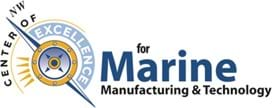
Center of Excellence for Marine Manufacturing & Technology
The Center of Excellence for Marine Manufacturing & Technology is dedicated to building a world-renowned marine industry through specific training within educational programs that can be shared throughout the community and technical college system. Its goals include the development of a highly skilled workforce, and to continually advance industry processes and practices through outreach and collaboration. The center is located at Skagit Valley College in Anacortes, Washington.

Centre of Expertise in Port Logistics
Established October 13, 2022, the Centre of Expertise in Port Logistics is a not-for-profit organization with the mission to conduct applied research projects for Quebec's port industry to develop smart, competitive and sustainable logistics chains. Its goal is to address all the challenges related to port logistics within the Saint-Lawrence and Saguenay system. The collaborative structure underlying its strategy unites the capabilities of the entire port network to deploy and test solutions that have been tailored to address industry issues and meet stakeholder needs.
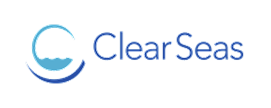
Clear Seas
Clear Seas is an independent, not-for-profit organization that provides impartial and evidence-based research to inform the public and policy makers about marine shipping in Canada, including risks, mitigation measures and best practices for safe and sustainable marine shipping. Clear Seas’ vision for safe and sustainable shipping is holistic, encompassing environmental, social and economic impacts of the shipping industry. Based in Vancouver, Canada, Clear Seas was officially launched in 2014 to be a leading source of independent, fact-based information on safe and sustainable marine shipping in Canada. Clear Seas was established in Canada after discussions with the marine shipping sector, port authorities, First Nations, non-governmental organizations, coastal communities, and other stakeholders concerned about marine shipping risks, prevention, preparedness, and response strategies along Canada’s coastlines and waterways.
Clear Seas, dont le siège social est à Vancouver (Canada), a été officiellement établi en 2014 dans le but de constituer la source principale d’information indépendante, de données factuelles sur des pratiques sûres et durables de transport maritime au Canada.
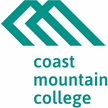
Coast Mountain College
Coast Mountain College is an accredited post-secondary institution that serves the diverse communities and learners within British Columbia’s northwest region.
Originally established as Northwest Community College in 1975, Coast Mountain College has five regional campuses serving 34 communities, 21 of which belong to First Nations.
Coast Mountain College provides students with innovative programs leading to sustainable careers in northern B.C. The original campus is in Terrace, B.C., with the other locations being in Hazelton, Smithers, Prince Rupert and on Haida Gwaii.
Small class sizes, online courses, university credit programs, trades foundation and apprenticeship options are some of the many features. Coast Mountain College also offers innovative and flexible mobile training to reach communities beyond its campuses.
Coast Mountain College aims to be the college of choice for experiential, place-based education that allows students to benefit from both classroom and outdoor learning.

Conseil Patronal de l'Environnement du Québec
The Conseil Patronal de l’Environnement du Québec (CPEQ) is an organization of key industry/business representatives and sector-based business associations whose activities have potential environmental impacts and who are, therefore, concerned with environmental and sustainable development issues. In its letter of support, the CPEQ welcomes the existence of an environmental program in which participants take concrete action to minimize their activities’ environmental impacts and strive to improve their environmental performance on an ongoing basis.

ECO Canada
ECO Canada serves as a steward for the Canadian environmental workforce across industries. The organization acts as a strategic workforce solutions partner to industries, academia and existing practitioners. It champions full career spans with its involvement in extensive labour market research, innovative job creation, wage funding and specialized training.
Aiming to promote and drive responsible, sustainable economic growth that makes certain that environmental best practices remain prioritized, ECO Canada challenges the status quo by working in partnership with key stakeholders. They include policymakers, government agency representatives, current professionals, potential employers, along with the academic community and students.
ECO Canada has established itself as the go-to source for the environmental labour market with research that provides detailed statistics and unmatched analysis on economic and labour trends that identify workforce gaps, as well as innovative strategies to address them.

EcoMaris
To protect the St-Lawrence we must first experience it. ÉcoMaris, a non-profit organization, aims to increase environmental awareness and education in the maritime sector through concrete nautical projects on board its traditional sailing ship. ÉcoMaris works with communities, businesses and governments to provide opportunities for youth and corporate participants to learn about the maritime industry, to discover the different marine ecosystems and to actively contribute to its conservation.
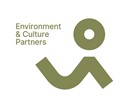
Environment and Culture Partners
Environment and Culture Partners (ECP) works to mobilize cultural institutions to message and model ways to address environmental issues. ECP also encourages these institutions to collaborate with their communities and other sectors to advance climate action and resilience.
Museums, zoos, gardens, aquariums, and cultural heritage sites are some of the key community gateways for regional governments, local municipalities, Indigenous communities, and civic organizations to show their planning for a resilient future that prioritizes equity, economics, and health.
Based on these three pillars, ECP focuses on projects that involve and serve multiple organizations locally and internationally. Both the communities and other cultural entities involved benefit from the work to build a more sustainable future that limits global warming and its impacts.

Fisheries and Marine Institute of Memorial University of Newfoundland
A future-focused organization, the Marine Institute (MI) offers an extensive breadth of academic expertise, research and training across ocean sectors. It serves as a leading asset to Newfoundland and Labrador in realizing the province’s ocean economy ambitions while understanding the importance of its natural, economic and cultural heritage.
MI has three schools – the School of Fisheries, the School of Maritime Studies, and the School of Ocean Technology - and within each school there are specialized centres and units that lead MI in applied research, technology transfer, as well as training to a variety of clients in Canada and globally.
The more than 30 industry-driven programs range from technical certificates to PhDs. Students enjoy a learning environment where small class sizes are the rule, hands-on instruction is a way of life, and competitive tuition rates put internationally recognized education within their reach. MI also runs a variety of short courses and industrial response programs. All the programs and courses are designed to provide students with knowledge and skills required for success in the workforce.
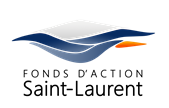
Fonds d'action Saint-Laurent
The Fonds d'action Saint-Laurent (FASL) promotes the ecosystems conservation of the St. Lawrence River, including the Gulf of St. Lawrence. FASL supports projects aimed at conserving, rehabilitating and enhancing the river, as well as initiatives focused on raising awareness regarding the issues concerning the waterway, with the overall goal of preserving its sustainable uses.

Great Lakes Maritime Research Institute
The Great Lakes Maritime Research Institute, a University of Wisconsin – Superior and University of Minnesota Duluth consortium, supports sustainable maritime commerce on the Great Lakes through applied research. It brings together the strengths of the two host universities, along with the research capabilities of other Great Lakes Universities. Established in 2004, the Institute has been designated by the U.S. Department of Transportation’s Maritime Administration as the National Maritime Enhancement Institute for the Great Lakes.
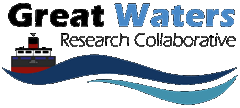
Great Waters Research Collaborative
The Great Waters Research Collaborative (GWRC) is an initiative of the Lake Superior Research Institute (LSRI) at the University of Wisconsin-Superior, which is devoted to objective, third-party research in support of sustainable industrial, commercial and public use of U.S. waterways, especially in terms of green shipping. The GWRC has comprehensive research capacity for providing maritime-related environmental research services. The team is comprised of experienced researchers with diverse expertise from LSRI, the Natural Resources Research Institute at the University of Minnesota-Duluth, as well as AMI Consulting Engineers. GWRC’s primary focus is on preventing new introductions of invasive species through ballast water in the Great Lakes and elsewhere.
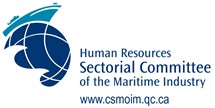
Human Resources Sectorial Committee of the Maritime Industry
Founded in 2001 and mandated to review, build consensuses and take action, the Human Resources Sectorial Committee of the Maritime Industry (CSMOIM) is an organization composed of employer and employee representatives. CSMOIM works to promote the interests of Québec’s marine industry, developing human resources by carrying out projects aimed at training, human resources management, sectorial knowledge and planning for the new generation of workers.

INO
A world leader in optics-photonics, INO has been developing innovative solutions for companies for more than 35 years.
Using a wide range of light applications from lasers to fibre optics and imaging, INO captures, identifies, predicts, decides and transforms the real world.
INO’s renowned technology research centre has implemented more than 6,500 solutions. It has also completed 75 technology transfers, which have contributed to the creation of 35 new companies employing more than 2,000 people in total.

Institut Maritime du Québec
Recognized for its leadership, the Institut Maritime du Québec (IMQ), founded in 1944, is the largest French-language maritime college in Canada. A member of the Écoles nationales du Québec network, it trains the workforce in four areas of specialization: naval architecture, navigation, marine mechanical engineering and operations, and supply chain management. To fulfil its mission of supporting the maritime and maritime-related industries, the IMQ's Continuing Education department offers regulated, credited training and customized upgrading through its Emergency Measures Training Centre and through its Professional Diving Training Centre. The IMQ also works closely with Innovation maritime (IMAR), a centre for applied research in maritime technologies.
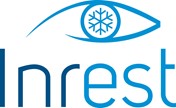
Institut Nordique de Recherche en Environnement et en Santé au Travail (Inrest)
INREST (L’Institut nordique de recherche en environnement et en santé au travail) is a Nordic institute with the mission to carry out research on environmental and health issues within the workplace in northeastern Quebec. Created in 2013, it is an independent corporate entity associated with Cégep de Sept-Îles through a management agreement with the college. INREST has several objectives, most notably to encourage and support innovative projects that take into account the need for sustainable development, to provide scientific backing for sound business and work-related decision-making, to connect researchers involved in environment/health issues in Northern workplaces, and to make their research activities and findings better known to more of the public.
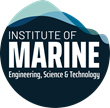
Institute of Marine Engineering, Science and Technology (IMarEST)
IMarEST is The Institute of Marine Engineering, Science and Technology, an international professional body and learned society for all marine professionals. IMarEST is the first organization to bring together marine engineers, scientists and technologists into one international multidisciplinary professional association.
The largest marine organization of its kind, IMarEST has a worldwide membership exceeding 18,000 in more than 120 countries. A registered charity, it provides different levels of membership, from Chartered or Professional Recognition status to an entry for individuals just starting out in their career or embarking on this realm for their education.
IMarEST’s purpose is to work within the global marine community to promote the development of marine engineering, science and technology, by providing opportunities for the exchange of ideas and practices and by upholding the status, knowledge and standards of marine professionals worldwide.
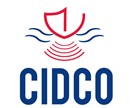
Interdisciplinary Ocean Mapping Development Center (CIDCO)
The Interdisciplinary Ocean Mapping Development Center (CIDCO) is a marine geomatics and hydrospatial R&D organization that works to enhance marine spatial data acquisition, management, and graphics technologies.
CIDCO is a non-profit organization (created in 2002) at the forefront of marine science, hydrography and hydrospatial science, serving the R&D and training needs of institutions and industry.
Its team of experts trains hydrographers and hydrospatial specialists from around the world through its IHO-certified Cat-B E-Learning course since 2014. They also develop hydrographic equipment and software such as HydroBall, HydroBlock, HydroTom, Depthstar, OpenSideScan, etc. to facilitate the acquisition and interpretation of underwater data with institutional collaborators and commercial partners.
CIDCO is an active member of the Canadian Coastal Ocean Mapping Research & Education Network (COMREN) and has been recognized by Fisheries and Oceans Canada as a Canadian Champion for the United Nations Decade of Ocean Sciences for Sustainable Development (2021-2030).

MARIN (Maritime Research Institute Netherlands)
MARIN, the Maritime Research Institute Netherlands, is an internationally renowned, independent institution operating globally with more than 400 specialists in ship modeling. Based in Wageningen, its nautical and hydrodynamic research is also focused on making vessels, platforms, harbours and turbines – any construction in or on water – cleaner, safer and smarter.
Realizing annual turnover of approximately 45 million €, MARIN combines its independent research methods to provide solutions for the concept development, design and operation of waterborne projects, while also partnering with others to stimulate innovations within the maritime industry and academic field.
MARIN is now looking at nature-inspired solutions to continue its mission of focusing on an ever safer and cleaner shipping industry, as well as the ocean’s sustainable use in terms of providing food, raw materials, and energy resources.
Its own testing is transitioning to using fewer – but more complex – models with the help of increased digitalization and simulations.

Maryland Environmental Service
Maryland Environmental Service (MES) was created by the Maryland General Assembly in 1970 to support the maintenance, improvement and management of the quality of air, land, water and other natural resources, as well as to promote the health and welfare of the state’s citizenry. Today, MES has more than 700 employees and operates upwards of 1,000 environmental projects throughout Maryland and in the mid-Atlantic region. A leader in environmental management services, MES oversees and carries out projects that including dredging, shoreline restoration, water, wastewater and stormwater management, as well as solid waste and recycling programs. As a non-budgeted agency of the state, MES provides multidisciplinary environmental services to enhance and protect the environment through innovative solutions to the region's most complex environmental challenges.

Mitacs
Mitacs is a catalyzing force in Canadian innovation by empowering partnerships that deliver solutions to some of the world’s most pressing challenges.
With a collaborative approach, Mitacs has established a world-class community of diverse innovators whose ideas are matched with the necessary expertise to create ambitious solutions to real-world problems. The not-for-profit research organization works in partnership with Canadian academia, private industry, and government to provide research and training related to industrial and social innovation.
Mitacs advisors find and match a company with top-tier researchers and talent to deliver on an innovative project. Its dedicated team of expert advisors work with the company to chart its specific innovation roadmap. By contributing to the cost of the required talent, Mitacs assists in funding, developing, and making a new promising idea a less risky venture.
Organizations participating in Mitacs programs gain access to world-class research teams and talented individuals with relevant training. Mitacs is the driving force behind a wealth of innovation projects across all sectors in Canada.

MORAES
MORAES (Marine Order for Research and Action through Environmental Stewardship) of South Florida is a registered non-profit organization founded to provide opportunities, spark action and engage in scientific research within the local community to benefit the region’s coastal environment.
Current projects are:
- Sea turtle nesting, including the monitoring of marine turtle activity along Virginia Key’s shorelines
- Evolving Darwin beach, which is the biological enhancement of a beach coastline along the University of Miami Rosenstiel
- The Cetacean Aerial Survey Project (CASP), an experimental research project aimed to study wild populations of bottlenose dolphins in Florida Bay with the use of non-invasive, drone technology.
These and other projects, along with a dedication to provide valuable education outreach opportunities, have MORAES working as a small non-profit that seeks out enduring partnerships with people and organizations that share its environmental mission.

Nets for Net Zero
Nets for Net Zero est une nouvelle organisation canadienne à but non lucratif qui s’efforce d’éliminer les engins de pêche fantômes des océans et de les réutiliser dans le cadre d’un système d’économie circulaire transparent. On estime que 64 000 tonnes de filets de pêche sont perdus ou jetés dans les océans chaque année, et que les mammifères marins s’y empêtrent souvent. Nets for Net Zero met en place un réseau permettant aux organisations environnementales et à l’industrie de travailler ensemble pour trouver des solutions au problème des engins de pêche fantômes dans les eaux canadiennes et au-delà. Les solutions proposées par Nets for Net Zero comprennent des investissements dans la recherche et la technologie, la promotion de l’économie circulaire, la mise en réseau de matériaux circulaires, ainsi que des conseils sur la chaîne d’approvisionnement.

Net Zero Atlantic
Net Zero Atlantic is a team of scientists, engineers and program managers using their knowledge, skills and experience to advance Atlantic Canada’s sustainable and inclusive transition to a carbon-neutral future.
Using objective research and data, Net Zero Atlantic provides direct support to projects or collaborates with other experts as needed. It also shares in the insights gathered by collaborating with others to achieve net zero emissions by 2050.
Net Zero Atlantic collaborates with academia, governments, the private sector, Indigenous communities, and NGOs.

Nova Scotia Community College
Nova Scotia Community College (NSCC) is transforming the province. They believe the future lies in the power of learning, which is why they care about the success of every student – in education, in their career, and in life. Through a network of 14 campuses, they provide Nova Scotians with inclusive and flexible access to education and the specialized, industry-driven training essential for today's and tomorrow’s workforce.
NSCC's Nautical Institute is part of the Strait Area Campus and offers Transport Canada-approved marine training for students who want to start or advance their career at sea.
Students learn in specially designed marine facilities, including a wave tank, free-fall lifeboat, and fire training center. The learning environment at the Nautical Institute offers state-of-the-art simulation equipment for navigation and engine room training. The Nautical Institute also offers extensive post-sea training options for industry.
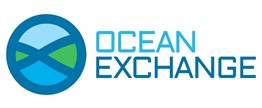
Ocean Exchange
The Ocean Exchange is an international platform to accelerate the adoption across industries of solutions that positively affect the environment, economies, and health, while respecting cultures around the world. The Ocean Exchange is the intersection where organizations from around the world advance and promote their cutting-edge solutions and innovations in materials, devices, processes and systems. It has created the knowledge-based catalyst for organizations to achieve corporate social responsibility goals. By connecting innovators and organizations, The Ocean Exchange empowers the successful application of solutions for the greater good.
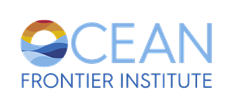
Ocean Frontier Institute
The Ocean Frontier Institute (OFI) was established in September 2016 through a partnership led by Dalhousie University, Memorial University and the University of Prince Edward Island. An international hub for ocean research, OFI brings together experts from both sides of the North Atlantic to explore the vast potential of the ocean.
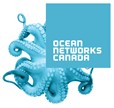
Ocean Networks Canada
Ocean Networks Canada, an initiative of the University of Victoria, operates the world’s most advanced cabled ocean observatories off the coast of British Columbia and in the Canadian Arctic. Ocean Networks Canada has recently launched the Smart Oceans Systems,™ a program that harnesses science and research with its world-leading technology to deliver both data and data management and archival products to improve marine and public safety, as well as the environmental monitoring of Canada’s coastal and offshore ocean areas.

Oceans Advance
Oceans Advance is Newfoundland and Labrador’s ocean technology innovation cluster. It welcomes representative members from industry, research and technology organizations, education and training facilities, all levels of government, as well as municipal economic development services and agencies.
Members engage in providing solutions for fisheries and aquaculture, ocean observation and monitoring, maritime transportation, offshore energy development, climate change adaptation, marine recreation and tourism, as well as security and defence.
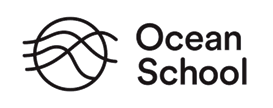
Ocean School
Ocean School is an innovative educational and public engagement initiative that uses creative learning and storytelling techniques to foster ocean literacy. Jointly launched by Dalhousie University and the National Film Board of Canada, its mission is to provide the next generation of citizenry with the knowledge and tools to understand how vital oceans are to human and other life and people’s impacts on these vast bodies of water.

Ocean Wise (Aquarium de Vancouver)
Ocean Wise is a global ocean conservation organization focused on protecting and restoring our world’s oceans. Building on the roots of the Vancouver Aquarium Marine Science Centre, which started as a community-based not-for-profit organization, Ocean Wise aims to inspire people in every corner of the planet to participate in creating healthy oceans. Through engagement, education, direct action and research, Ocean Wise is working towards a future where our oceans will once again thrive.

Plastic Oceans Foundation Canada
Plastic Oceans Foundation Canada (POC) was established after the release of the critically acclaimed A Plastic Ocean documentary to eradicate plastic pollution from the nation’s waterways. Focusing primarily on education, POC Canada has worked with like-minded organizations to elevate social consciousness about the impacts of waste plastic on waterways. With this matter now reaching critical mass in terms of awareness and numerous countries announcing a state of environmental emergency, POF Canada has transitioned to delivering a variety of solution-based programs. POF Canada offers governments, businesses and individuals the tools to succeed through a multitiered systematic approach that includes partnerships, guidance, facilitation, reduction, local processing and continuing education.

Promotion Saguenay
An integrated organization, Promotion Saguenay brings together under one roof a wide range of services and expertise in industrial, commercial, tourism, and airport development.
Its mission is to contribute to the economic development of Saguenay by mobilizing and accompanying the entrepreneurs and stakeholders of the territory. It also promotes the destination and is involved in supporting efforts to diversify the tourism, event and cultural offerings.

Royal Canadian Marine Search and Rescue
Royal Canadian Marine Search and Rescue (RCMSAR) is a volunteer, community-based organization that operates from 33 marine rescue stations along the British Columbia coast and interior. From Vancouver’s busy harbour to the remote waters of the North Coast, RCMSAR volunteer crews are on call 24/7 all 365 days a year to respond to marine emergencies. RCMSAR is a key member of the marine search and rescue system, operating in one of the world’s most challenging search and rescue regions. RCMSAR volunteers stand ready to leave their jobs and their families on a moment’s notice to help people in trouble on the water – no matter how foul the weather or rough the seas. Crews are highly trained and equipped with specialized rescue vessels designed for the challenges of the West Coast and respond hundreds of times to handle nearly one-third of all the marine emergencies in the region annually.
Les volontaires du RCMSAR sont prêts à quitter leur emploi et leur famille à tout moment pour aider les personnes en difficulté sur l’eau, quelle que soit la météo ou les conditions. Les équipages sont hautement formés et l’organisme possède des navires de sauvetage spécialisés conçus pour les défis de la Côte Ouest. Le RCMSAR répond à des centaines de sauvetages maritimes et gère près d’un tiers de toutes lesurgences maritimes de la région chaque année.
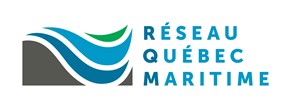
Quebec Maritime Network
Launched in May 2016 in the wake of Quebec’s first Maritime Strategy, the Quebec Maritime Network is a major societal project aimed at federating research and fostering collaborations regarding all issues related to sustainable maritime development. All Quebec universities, colleges, technology transfer centres, research centres, government and community organizations and industries working in the maritime field are institutional members. The Ministère de l’Économie et de l’Innovation du Québec and the Fonds de recherche du Québec are financial partners, while the Université du Québec à Rimouski is the network’s managing institution.
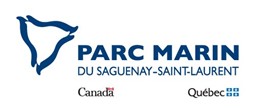
Saguenay - St. Lawrence Marine Park
Recognizing the need to protect the environment, fauna, flora and natural resources of a key part of the Saguenay Fjord and the St. Lawrence Estuary, the governments of Canada and Quebec have created with the public’s support the Saguenay-St. Lawrence Marine Park. Its mission is to enhance for the benefit of current and future generations the level of protection for ecosystem conservation, while promoting educational, recreational and scientific activities. The activities carried out in the marine park are framed with a view to sustainable use. Regional stakeholders are also involved in achieving the marine park’s objectives. The Saguenay-St. Lawrence Marine Park protects a marine region with exceptional animal and plant diversity: from microscopic algae to the gigantic blue whale, more than 1,600 wild species have been observed there.

Seattle Aquarium
The Seattle Aquarium is a conservation organization working to regenerate the health of Earth’s one ocean. Proudly accredited by the Association of Zoos & Aquariums, it is among the top 10 aquariums in the U.S. by attendance. Guided by the mission of Inspiring Conservation of Our Marine Environment, the Seattle Aquarium works among global leaders to advance animal wellbeing, marine and ecosystem science, public policy, field conservation, education and species recovery programs that benefit the ocean. The Seattle Aquarium has a regenerative plan with goals related to energy and emissions, water and effluents, waste, materials, and engagement, all aimed at achieving the vision of becoming a regenerative aquarium that produces more environmental benefits than harm and helps ensure a climate-resilient, regenerative future for all.
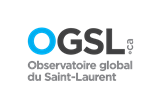
St. Lawrence Global Observatory
The St. Lawrence Global Observatory is a non-profit organization bringing together a network of scientists, observers, modellers and managers from universities, research organizations, provincial and federal departments, environmental and community groups and the industry. SLGO's mission is to promote the sharing and pooling of scientific information on the St. Lawrence ecosystem.
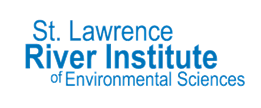
St. Lawrence River Institute of Environmental Sciences
The St. Lawrence River Institute of Environmental Sciences is a non-government, non-profit organization established in 1994 as a unique community partnership involving government, business, industry, and the Mohawks of Akwesasne. Its mandate focuses on environmental research, education, and community action on the St. Lawrence River and Great Lakes basin. Located in the heart of the St. Lawrence Seaway, the River Institute undertakes research that contributes to the scientific foundation of how large river ecosystems and their components function. Working partnerships with universities, governments, industry, academia, and communities allow the Institute to addresses local, national and international needs.
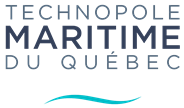
Technopole Maritime du Québec
The main objective of Technopole Maritime du Québec is to accelerate the development of Quebec’s marine science, technology and biotechnology sectors by promoting their resources and expertise nationally and internationally, while providing value-added services to its members as well as support for priority long-term projects.

Upcycle the Gyres Society - UpGyres
Not-for-profit UpGyres is working to re-establish a healthy marine environment for people and the planet. The organization strives to stop plastic waste from polluting water and other environments, and to recuperate the resources in waste plastic to productively recycle back into the economy. UpGyres focuses on preventing macro-plastics (namely single-use disposable packaging) along with micro-plastics and micro-textiles from entering water. UpGyres is also spearheading the Plastika Reparabilis Challenge 2018-2020 to foster the most forward-thinking projects to recover and reuse plastic waste.

MUNICIPALITIES
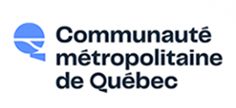
Communauté métropolitaine de Québec
La Communauté métropolitaine de Québec (CMQuébec) est un organisme de planification, de coordination et de financement qui regroupe 28 municipalités et plus de 820 000 personnes. Ses champs d’intervention s’orientent particulièrement en aménagement du territoire, en environnement, en transport métropolitain et en gestion des matières résiduelles.
WHY BECOME A SUPPORTER?
By becoming a supporter, you will benefit from:

A COLLABORATIVE APPROACH
Participate directly in the development of the program (on environmental issues, specific requirements and other prioritized matters and/or emerging issues).

COMMUNITY PARTICIPATION
Encourage companies to improve beyond regulatory requirements by having the opportunity to relate environmental issues possibly arising from maritime operations, as well as potential solutions.

VISIBILITY
Benefit from the visibility on Green Marine’s website, social media, and newsletter distributed to more than 4,500 subscribers. Display Green Marine’s Supporter logo.

PREFERENTIAL RATES
Take advantage of preferential rates at Green Marine’s annual GreenTech conference.

BECOME A GREEN MARINE SUPPORTER
Green Marine supporters both support and encourage the sustainability initiative undertaken by the maritime industry.

A VAST NETWORK
Green Marine’s membership – participants, supporters, associations and partners – is committed to continually reducing the maritime industry’s environmental footprint through a process of continual improvement, to building strong relationships with stakeholders, and to publicizing the maritime transportation’s environmental activities and advantages.


